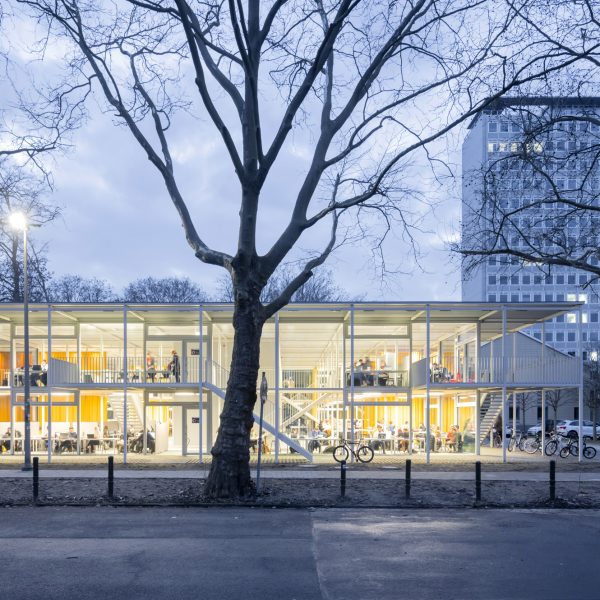Berlin architects Gustav Düsing and Max Hacke have been awarded this year’s Mies van der Rohe Award for Study Pavilion, a steel-framed university building in Germany.
Düsing and Hacke, who founded their eponymous studios in 2015 and 2016 respectively, are the youngest people to have ever received the biennial accolade, also known as the European Union Prize for Contemporary Architecture or EUmies Award.
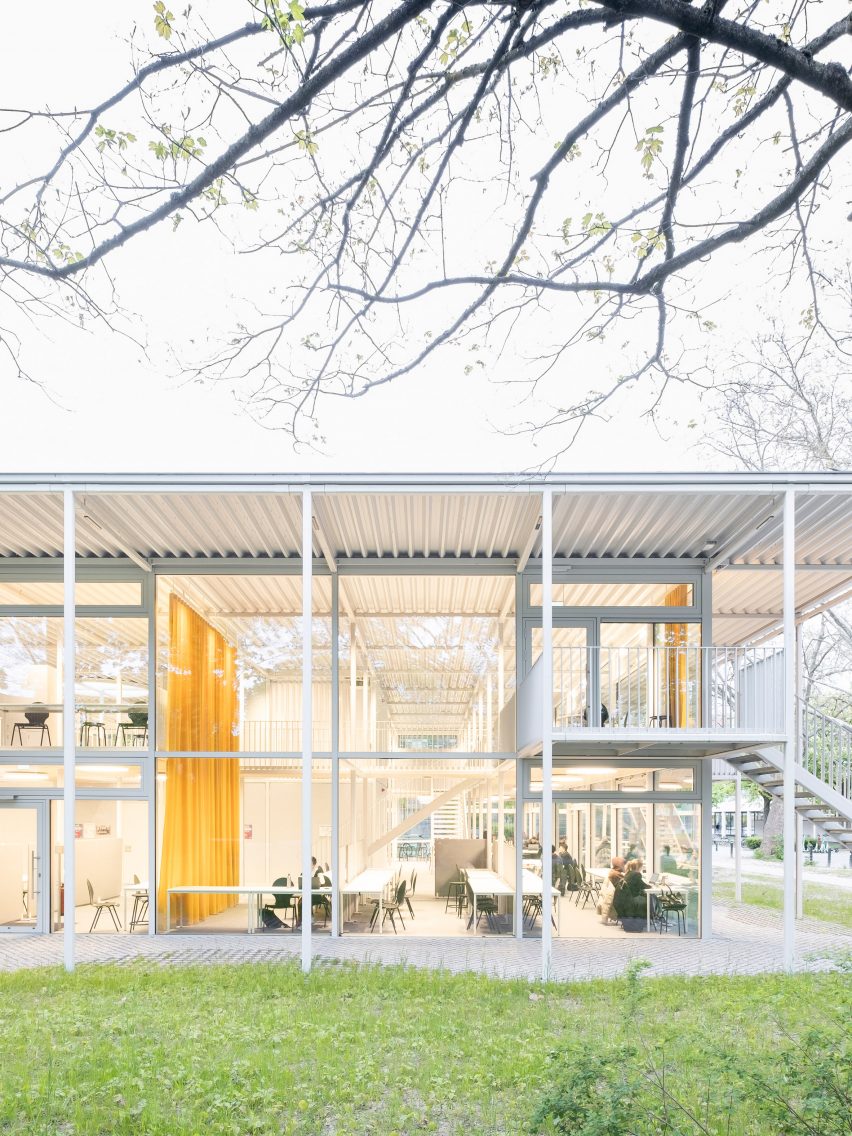
The gridded Study Pavilion was created for the Technical University of Braunschweig as a campus building containing flexible spaces for studying and socialising.
It won the prize for “its ability to challenge the constraints and imagery of sustainability, creating a welcoming and playful environment for study, collaboration and community gathering through an uncompromising and carefully detailed structure,” according to the award announcement.
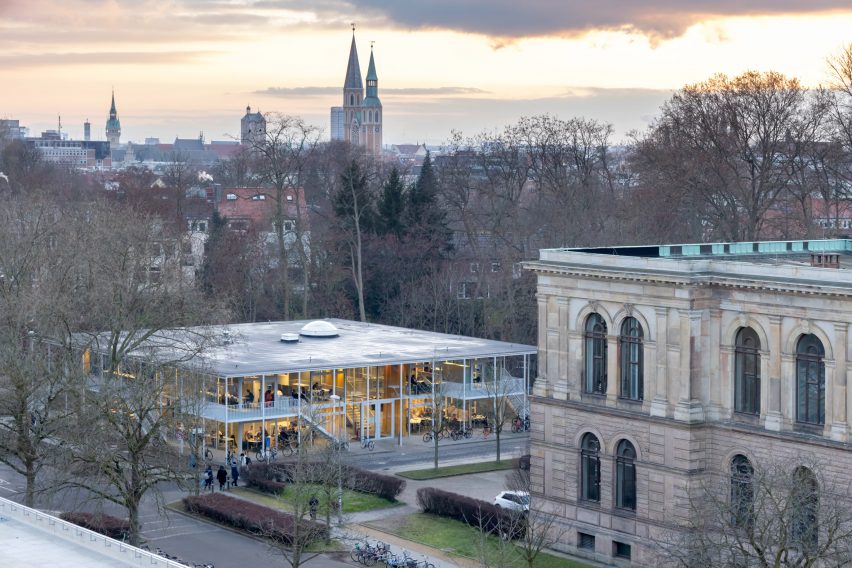

“It has taken a clear architectural idea, scrutinised it and pushed it to the limit,” the announcement continued. “More than being a building, it could be understood as a versatile system, merging technological inventions with a flexible and reusable principle.”
The Study Pavilion has a hybrid steel-wood structure organised in a three-by-three metre grid of columns and beams, wrapped with fully glazed facades.
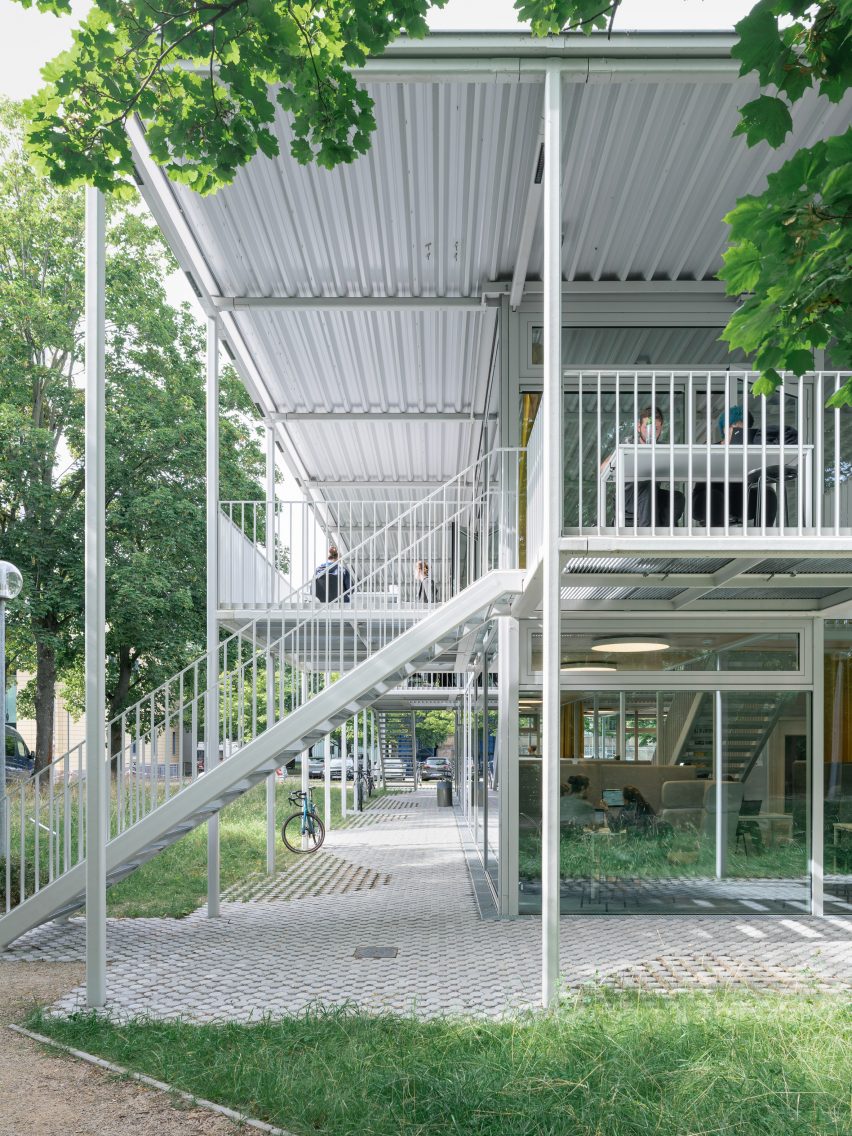

Study spaces are spread across an open-plan ground floor and a mezzanine level, with sound-absorbing yellow curtains that can be drawn to create separated zones.
The university building was selected as the winner from a list of 362 nominated projects. Among the finalists were a school in Spain with zigzagging shapes animating the facade, a renovated 15th-century convent and a slaughterhouse that was transformed into an art gallery.
The Mies van der Rohe Award also announced Spanish studio SUMA Arquitectura as the winner of the Emerging Architecture prize for its design of the Gabriel García Márquez Library in Barcelona.
The library has a geometric form with chamfered edges and an interior organised around a triangular atrium.
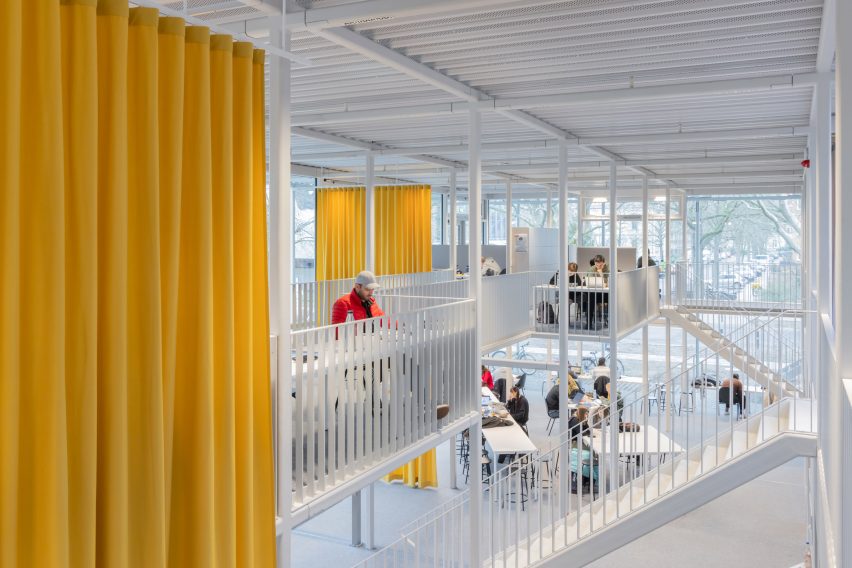

“The library acts at the scale of the city, contributing to the transformation of the neighbourhood by opening up as a new exterior and interior public space,” said the award announcement.
“This wooden structure unfolds as a rich sequence of monumental and domestic spaces that welcome neighbours and citizens, providing them with comfortable atmospheres for learning, teamwork, and community engagement,” it continued.
“With meticulous attention to detail, the authors have thoroughly examined and pushed the library programme to its fullest potential.”
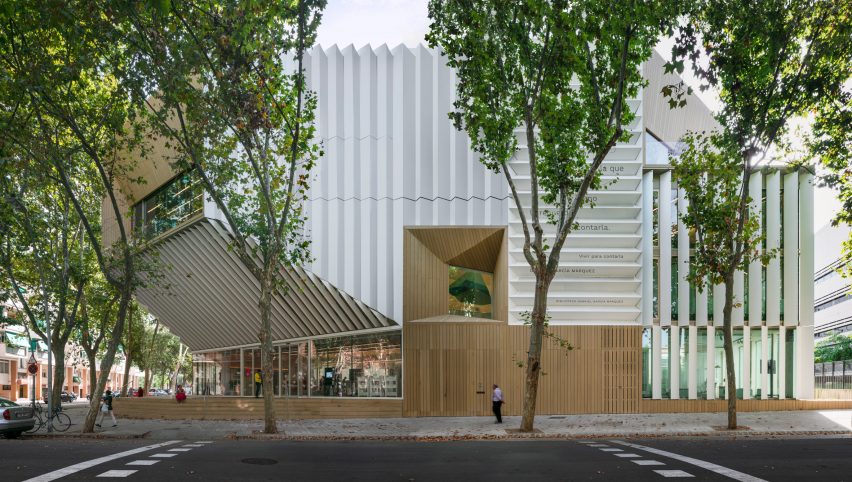

Founded in Barcelona in 1988, the biennial Mies van der Rohe Award seeks to recognise the best architecture projects in Europe.
This year’s jury wanted to emphasise “the significance of architecture that explores the potential to shift mindsets and policies, as well as the importance of fostering inclusivity,” according to the organisers.
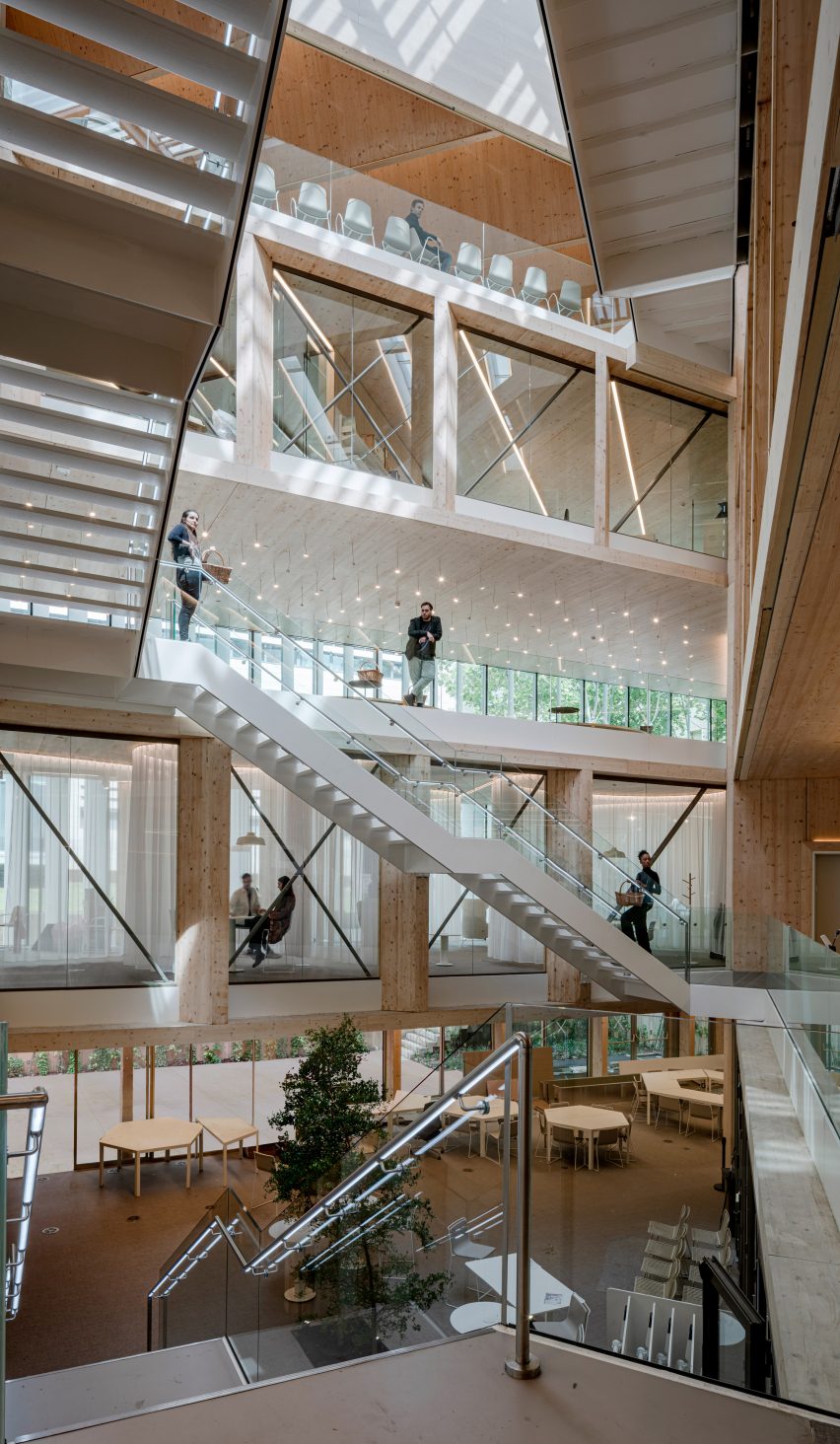

Irish studio Grafton Architects was the recipient of the 2022 Mies van der Rohe Award for a university building named Town House. It was the last-ever UK-based project to win the award since the country is no longer eligible to enter after Brexit.
Past winners also include a 1960s social housing renovation in France, which received the prize in 2019, and the 2017 winner was a renovated apartment block in Amsterdam.
The photography is by Leonhard Clemens unless stated.

